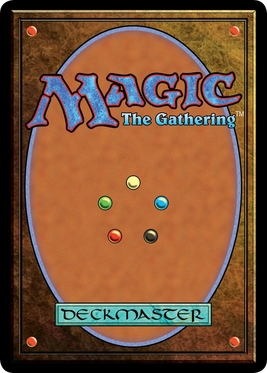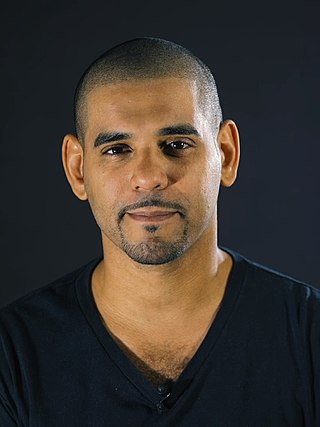
Magic: The Gathering is a tabletop and digital collectable card game created by Richard Garfield. Released in 1993 by Wizards of the Coast, Magic was the first trading card game and had approximately thirty-five million players as of December 2018, and over twenty billion Magic cards were produced in the period from 2008 to 2016, during which time it grew in popularity.
The Magic: The Gathering World Championships(Worlds) have been held annually since 1994. It is the most important tournament in the game of Magic: The Gathering, offering cash prizes of up to $100,000 to the winners. With the exception of the first edition, Worlds is an invitation-only event, and from 1996 to 2011 World was the last event of each Pro Tour season. The invitees were mostly top finishers from the National championships, the top-ranked players of the DCI and high-level pro players. Since 2012 the World Championships are held after the season and the most successful 16 or 24 players have been invited to the tournament.

David Anthony Williams is a professional poker player and popular Magic: The Gathering player who also competed on Season 7 of the popular FOX cooking show MasterChef, where he finished as co-runner-up.
The Players Tour (PT) is a competitive international league for the Magic: The Gathering collectible card game, culminating in the World Championship. It consists of a series of tournaments held throughout the world, each requiring an invitation to participate. The Players Tour permanently replaced the Pro Tour in the 2020 season. Every PT awards a total of $250,000 in cash prizes, with $50,000 going to the winner. The Players Tour is split into three regions: Americas, Europe, and Asia-Pacific. Each region hosts three events, resulting in nine Players Tour events per season.

Magic: The Gathering Online is a video game adaptation of Magic: The Gathering, utilizing the concept of a virtual economy to preserve the collectible aspect of the card game. It is played through an Internet service operated by Wizards of the Coast, which went live on June 24, 2002. The game does not run on mobile as Magic: the Gathering Arena does, since it is only install-able on Microsoft Windows. Users can play the game or trade cards with other users.
Olle Råde is a professional Magic: The Gathering player from Sweden. He was inducted to the Magic: The Gathering Pro Tour Hall of Fame as part of the inaugural class in 2005. Olle was also the first player awarded with the coveted Player of the Year award and was the first non-American player to win a pro tour event. He was also the youngest pro tour event winner at the time He appears in the artwork of Sylvan Safekeeper, which he designed after winning the first Magic Invitational. In April 2015 a poll was conducted by www.svenskamagic.com, the official Magic the Gathering-page of Sweden. There Olle was voted best Swedish magic player of all time, with 37.3% of the votes. In May 2016 Olle won the Swedish Open Championship of Magic the Gathering, playing his trademark deck white weenie with a red splash.
Magic: The Gathering formats are various ways in which the Magic: The Gathering collectible card game can be played. Each format provides rules for deck construction and gameplay, with many confining the pool of permitted cards to those released in a specified group of Magic card sets. The Wizards Play Network, the governing body that oversees official Magic competitive play, categorizes its tournament formats into Constructed and Limited. Additionally, there are many casual formats with the Commander format being one of the most popular formats of the game.
Dirk Baberowski is one of the most successful professional Magic: The Gathering players. He has won three Pro Tours, tying him in second place with Jon Finkel. Two of those victories were won at team Pro Tours with his teammates of Phoenix Foundation, Kai Budde and Marco Blume.
The 2000–01 Pro Tour season was the sixth season of the Magic: The Gathering Pro Tour. On 23 September 2000 the season began with parallel Grand Prixs in Sapporo and Porto. It ended on 12 August 2001 with the conclusion of the 2001 World Championship in Toronto. The season consisted of 27 Grand Prixs and 6 Pro Tours, held in New York, Chicago, Los Angeles, Tokyo, Barcelona, and Toronto. Also special Master Series tournaments were held at four Pro Tours. These tournaments featured huge cash prizes, but were open to only 32 players. At the end of the season Kai Budde was proclaimed Pro Player of the Year, making him the only player to win the title more than once.
The 2001–02 Pro Tour season was the seventh season of the Magic: The Gathering Pro Tour. On 18 August 2001 the season began with parallel Grand Prixs in Kobe and Denver. It ended on 18 August 2002 with the conclusion of the 2002 World Championship in Sydney. The season consisted of 33 Grand Prixs and 6 Pro Tours, held in New York, New Orleans, San Diego, Osaka, Nice, and Sydney. Also Master Series tournaments were held at four Pro Tours. At the end of the season Kai Budde was proclaimed Pro Player of the Year, winning the title by a record margin.
The 2002–03 Pro Tour season was the eighth season of the Magic: The Gathering Pro Tour. On 24 August 2002 the season began with Grand Prix Sapporo. It ended on 10 August 2003 with the conclusion of the 2003 World Championship in Berlin. The season consisted of 21 Grand Prixs and 6 Pro Tours, held in Boston, Houston, Chicago, Venice, Yokohama, and Berlin. Also Master Series tournaments were held at four Pro Tours. At the end of the season Kai Budde was proclaimed Pro Player of the Year for the third time in a row.
The 2005 Pro Tour season was the tenth season of the Magic: The Gathering Pro Tour. On 10 September 2004 the season began with Grand Prix Rimini. It ended on 4 December 2005 with the conclusion of the 2005 World Championship in Yokohama and was thus the longest Pro Tour season ever. The season consisted of 31 Grand Prixs and 7 Pro Tours, held in Columbus, Nagoya, Atlanta, Philadelphia, London, Los Angeles, and Yokohama. At the end of the season Kenji Tsumura was proclaimed Pro Player of the year as the first Japanese player. Also the first class of the Hall of Fame was inducted. The inductees were Jon Finkel, Darwin Kastle, Tommi Hovi, Alan Comer, and Olle Råde.
The 2006 Pro Tour season was the eleventh season of the Magic: The Gathering Pro Tour. On 18 December 2005 the season began with parallel Grand Prixs in Lille and Charlotte. It ended on 3 December 2006 with the conclusion of the 2006 World Championship in Paris. The season consisted of 22 Grand Prixs and 5 Pro Tours, held in Honolulu, Prague, Charleston, Kobe, and Paris. At the end of the season Shouta Yasooka from Japan was proclaimed Pro Player of the year. At the Worlds in Paris the second class of the Hall of Fame was inducted. The inductees were Bob Maher, Jr., Dave Humpherys, Raphaël Lévy, Gary Wise, and Rob Dougherty.
The 1996–97 Pro Tour season was the second season of the Magic: The Gathering Pro Tour. It began on 13 September 1996 with Pro Tour Atlanta, and ended on 17 August 1997 with the conclusion of 1997 World Championship in Seattle. The season consisted of five Grand Prix, and six Pro Tours, located in Atlanta, Dallas, Los Angeles, Paris, New York, and Seattle. At the end of the season Paul McCabe from Canada was awarded the Pro Player of the year title. It was the first season to host Grand Prix, which are major tournaments awarding cash prizes and Pro Points, but open to all players.
The 1997–98 Pro Tour season was the third season of the Magic: The Gathering Pro Tour. It began on 30 August 1997 with Grand Prix Toronto, and ended on 16 August 1998 with the conclusion of 1998 World Championship in Seattle. The season consisted of thirteen Grand Prix, and five Pro Tours, located in Chicago, Mainz, Los Angeles, New York, and Seattle. At the end of the season Jon Finkel from the United States was awarded the Pro Player of the Year title.
The 1998–99 Pro Tour season was the fourth season of the Magic: The Gathering Pro Tour. It began on 5 September 1998 with Grand Prix Boston and ended on 8 August 1999 with the conclusion of 1999 World Championship in Tokyo. The season consisted of fourteen Grand Prix, and five Pro Tours, located in Chicago, Rome, Los Angeles, New York, and Tokyo. At the end of the season Kai Budde from Germany was awarded the Pro Player of the year title.
The 1999–2000 Pro Tour season was the fifth season of the Magic: The Gathering Pro Tour. It began on 3 September 1999 with Pro Tour Boston and ended on 6 August 2000 with the conclusion of 2000 World Championship in Brussels. The season consisted of twenty Grand Prixs, and six Pro Tours, located in Washington D.C., London, Chicago, Los Angeles, New York, and Brussels. At the end of the season Bob Maher, Jr. was awarded the Pro Player of the year title.
The 2010 Pro Tour season was the fifteenth season of the Magic: The Gathering Pro Tour. It began on 13 February 2010 with Grand Prix Oakland, and ended on 12 December 2010 with the conclusion of the 2010 World Championship in Chiba, Japan. The season consisted of eighteen Grand Prixs, and four Pro Tours, located in San Diego, San Juan, Amsterdam, and Chiba. Gabriel Nassif, Brian Kibler, and Bram Snepvangers were inducted into the Hall of Fame at the World Championship in Chiba. Although the season formally ended with the conclusion of the World Championship, the final title of season was not awarded until three months later. Guillaume Matignon and Brad Nelson tied for Player of the Year. The title was decided by a single match between the two at the 2011 Pro Tour in Paris, which Nelson won by four games to two.
Magic: The Gathering Organized Play is the worldwide program for all levels of tournaments for the trading card game Magic: The Gathering. Created in 1993 by Wizards of the Coast, the Organized Play program has grown to host some of the largest trading card game tournaments ever, with hundreds of thousands of events each year. The vast majority of events are casual gaming events hosted at local stores, however, due to a common ranking system and set of rules and policies, these events ultimately feed players into the highest levels of play.


